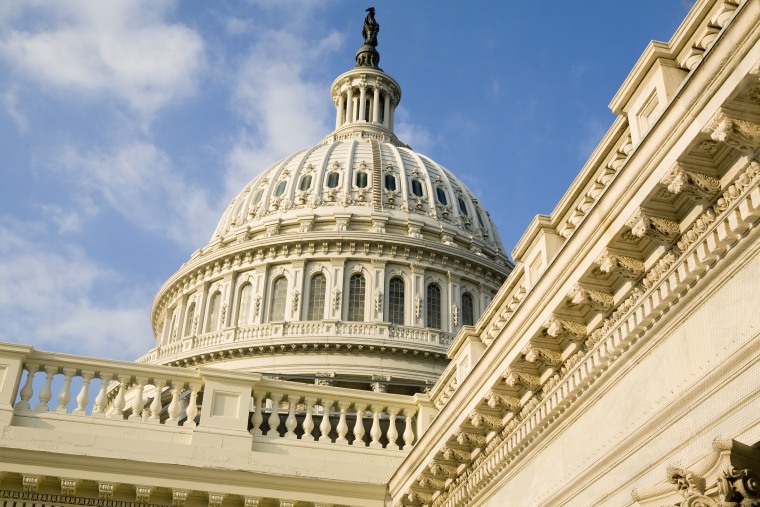As hate crimes against Asian Americans become painfully more common during the pandemic, policymakers felt increased pressure to act. And while watching Congress try to legislate can be an exasperating experience, once in a great while, lawmakers manage to do the right thing.
The Senate yesterday voted 94 to 1 to approve the COVID-19 Hate Crimes Act, intended to address anti-Asian hate crimes. As NBC News reported, the legislation is likely to help make a difference.
The legislation, introduced by Sen. Mazie Hirono, D-Hawaii, in March, would direct the Department of Justice to expedite the review of hate crimes related to Covid-19 that were reported to law enforcement agencies and help them establish ways to report such incidents online and perform public outreach. The bill would also direct the attorney general and the Department of Health and Human Services to issue best-practices guidance on how to mitigate racially discriminatory language in describing the pandemic.
The lopsided outcome wasn't necessarily a sure thing. Early last week, as the bill approached the floor, several Republican senators -- Arkansas' Tom Cotton, Texas' Ted Cruz, Missouri's Josh Hawley, Kansas' Roger Marshall, Kentucky's Rand Paul, and Alabama's Tommy Tuberville -- voted to block the start of the debate.
But once it was obvious that the legislation would clear the chamber anyway, most of those far-right senators ended up reversing course and voting with the majority.
The exception was Josh Hawley, who knew the bill would pass, but who apparently didn't mind standing alone as the measure's only opponent. The Missouri Republican told reporters he considered the bill "too broad" and potentially "dangerous."
The Kansas City Star reported that Missouri state Rep. Emily Weber (D), the first Asian-American woman elected to the Missouri General Assembly, said in a statement she was disappointed by Hawley's vote but not surprised.
"If there's a dubious spotlight, you can bet Josh Hawley will do anything to be standing in the middle of it," Weber said. "I wish our senator would spend more time supporting strong policy like this bill to protect AAPI Americans, and less time desperately seeking attention."
That's a sensible wish, though if recent history is any guide, it's more likely that Hawley will turn his vote into a fundraising tool.
The bill has not yet passed the House, though there's little doubt that the Democratic-led chamber will act on the issue, and the White House has already indicated that President Joe Biden will sign it into law.

